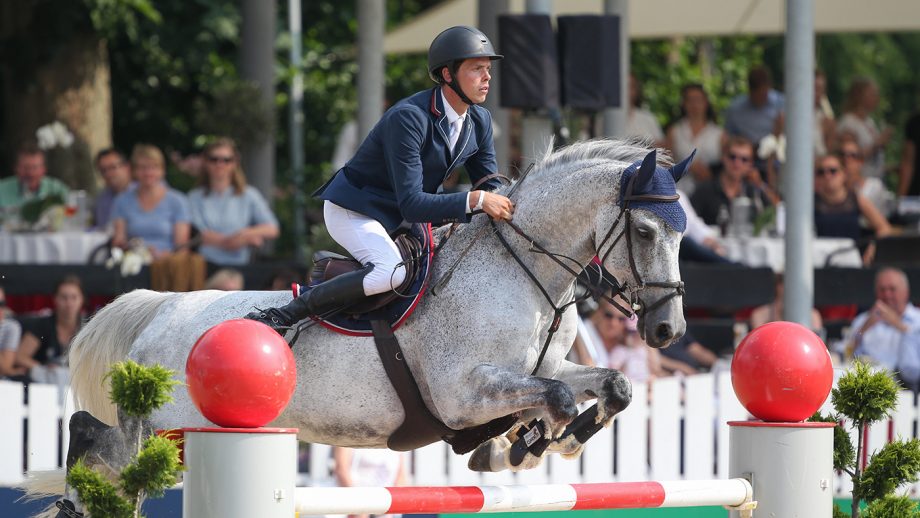As an Olympic sports body, the FEI has to comply with increased leniency toward recreational drug use. H&H talks to the experts to find out what the implications of this change could be
The FEI is reluctantly adopting a more lenient approach to recreational drug use by riders next year, in line with changes in the World Anti-Doping Agency’s (WADA) stance.
From January 1, the suspension for social drugs will be reduced from four years to one to three months if use is proven to be “out of competition” and not intended to enhance sports performance.
Equestrianism has to adopt this because, as an Olympic sports body, the FEI is bound by the WADA code.
{"content":"PHA+QnV0IGFuIEZFSSBzcG9rZXNtYW4gdG9sZCA8ZW0+SCZhbXA7SDwvZW0+OiDigJxEdXJpbmfCoGNvbnN1bHRhdGlvbiB3ZSBmb3JtYWxseSBleHByZXNzZWQgb3VyIGNvbmNlcm5zIG9uIHRoZSBwcm9wb3NlZCByZWR1Y2VkIHNhbmN0aW9ucy4gQXMgZXF1ZXN0cmlhbiBpcyBhIHJpc2sgc3BvcnQsIHdlIGFsc28gbmVlZCB0byBjb25zaWRlciB0aGUgc2FmZXR5IHBlcnNwZWN0aXZlLiBXZSBleHByZXNzZWQgdGhlIHZpZXcgdGhhdCwgaW4gb3VyIG9waW5pb24sIHRoZSByZXZpc2VkIHNhbmN0aW9uIHdhcyB0b28gbG93IGFuZCBjb3VsZCBtaW5pbWlzZSB0aGUgZGV0ZXJyZW50IGVmZmVjdC7igJ08L3A+CjxwPklmIHRoZSByaWRlciBhdHRlbmRzIGFuIGFwcHJvdmVkIGRydWdzIHJlaGFiaWxpdGF0aW9uIHByb2dyYW1tZSwgdGhlIGJhbiB3aWxsIGJlIGp1c3Qgb25lIG1vbnRoLsKgQ3VycmVudGx5LCB0aGUgc3RhbmRhcmQgdGFyaWZmIGlzIGZvdXIgeWVhcnMg4oCTIHdoaWNoIHdpbGwgY29udGludWUgdG8gYXBwbHkgd2hlcmUgdGhlIGF0aGxldGUgaW50ZW5kcyB0byBjaGVhdC48L3A+CjxwPjxkaXYgY2xhc3M9ImFkLWNvbnRhaW5lciBhZC1jb250YWluZXItLW1vYmlsZSI+PGRpdiBpZD0icG9zdC1pbmxpbmUtMiIgY2xhc3M9ImlwYy1hZHZlcnQiPjwvZGl2PjwvZGl2PjxzZWN0aW9uIGlkPSJlbWJlZF9jb2RlLTMxIiBjbGFzcz0iaGlkZGVuLW1kIGhpZGRlbi1sZyBzLWNvbnRhaW5lciBzdGlja3ktYW5jaG9yIGhpZGUtd2lkZ2V0LXRpdGxlIHdpZGdldF9lbWJlZF9jb2RlIHByZW1pdW1faW5saW5lXzIiPjxzZWN0aW9uIGNsYXNzPSJzLWNvbnRhaW5lciBsaXN0aW5nLS1zaW5nbGUgbGlzdGluZy0tc2luZ2xlLXNoYXJldGhyb3VnaCBpbWFnZS1hc3BlY3QtbGFuZHNjYXBlIGRlZmF1bHQgc2hhcmV0aHJvdWdoLWFkIHNoYXJldGhyb3VnaC1hZC1oaWRkZW4iPg0KICA8ZGl2IGNsYXNzPSJzLWNvbnRhaW5lcl9faW5uZXIiPg0KICAgIDx1bD4NCiAgICAgIDxsaSBpZD0ibmF0aXZlLWNvbnRlbnQtbW9iaWxlIiBjbGFzcz0ibGlzdGluZy1pdGVtIj4NCiAgICAgIDwvbGk+DQogICAgPC91bD4NCiAgPC9kaXY+DQo8L3NlY3Rpb24+PC9zZWN0aW9uPjwvcD4KPHA+UmlkZXIgcG9zaXRpdmVzIGZvciBjb2NhaW5lLCBhbXBoZXRhbWluZXMsIGEgY29tcG91bmQgb2YgcGFydHkgZHJ1ZyBBZGRlcmFsbCB3aGljaCBpcyB0cmFkaXRpb25hbGx5IHVzZWQgdG8gdHJlYXQgQURIRCwgYW5kIG90aGVyIHN0aW11bGFudHMgaGF2ZSBiZWNvbWUgdGhlIEZFSeKAmXMgbWFpbiBodW1hbiBhbnRpLWRvcGluZyBjb25jZXJuLjwvcD4KPHA+V0FEQSB0b2xkIDxlbT5IJmFtcDtIPC9lbT4gaXQgcmVjZWl2ZWQg4oCcY29uc2lkZXJhYmxl4oCdIHN0YWtlaG9sZGVyIGZlZWRiYWNrIHRoYXQgc29jaWFsIGRydWcgdXNlIG9mdGVuIGRvZXMgbm90IGFmZmVjdCBwZXJmb3JtYW5jZS4gTGFzdCB5ZWFyLCBXQURBIHdhcyBsb2JiaWVkIHRvIGxlZ2FsaXNlIGNhbm5hYmlz4oCZcyBtYWluIHBzeWNob2FjdGl2ZSBjb21wb3VuZCBUSEMgYnkgMTUwIHNwb3J0aW5nIGZpZ3VyZXMsIGluY2x1ZGluZyBib3hlciBNaWtlIFR5c29uIHdobyBvd25zIGEgY2FubmFidXNpbmVzcy48L3A+CjxwPuKAnFdoZXJlIGFuIGF0aGxldGUgaGFzIGEgZHJ1ZyBwcm9ibGVtIGFuZCBpcyBub3Qgc2Vla2luZyBvciBiZW5lZml0aW5nIGZyb20gcGVyZm9ybWFuY2UgZW5oYW5jZW1lbnQsIHRoZSBwcmlvcml0eSBzaG91bGQgYmUgb24gdGhlIGF0aGxldGXigJlzIGhlYWx0aCByYXRoZXIgdGhhbiBpbXBvc2luZyBhIGxlbmd0aHkgc3BvcnRpbmcgc2FuY3Rpb24s4oCdIHNhaWQgV0FEQeKAmXMgc3Bva2VzbWFuLjwvcD4KPGRpdiBjbGFzcz0iYWQtY29udGFpbmVyIGFkLWNvbnRhaW5lci0tbW9iaWxlIj48ZGl2IGlkPSJwb3N0LWlubGluZS0zIiBjbGFzcz0iaXBjLWFkdmVydCI+PC9kaXY+PC9kaXY+CjxwPuKAnFN1YnN0YW50aWFsIHJlc291cmNlcyBhcmUgc3BlbnQgYXJndWluZyBpbiBoZWFyaW5ncyBvdmVyIHRoZSBhcHByb3ByaWF0ZSBsZW5ndGggb2Ygc2FuY3Rpb24sIFt3aGljaCB3b3VsZCBiZV0gYmV0dGVyIHNwZW50IG9uIGFudGktZG9waW5nIGludmVzdGlnYXRpb25zIHdoaWNoIHJlYWxseSBkbyBhZmZlY3QgdGhlIGxldmVsIHBsYXlpbmcgZmllbGQgb2Ygc3BvcnQu4oCdPC9wPgo8cD5XQURBIGRlZmluZXMg4oCcY29tcGV0aXRpb27igJ0gYXMgYSBzaW5nbGUgcmFjZSwgbWF0Y2gsIGdhbWXCoChzdWNoIGFzIGEganVtcGluZyBjbGFzcyBvciBkcmVzc2FnZSB0ZXN0KSBvciBhIHNpbmd1bGFyIHNwb3J0cyBjb250ZXN0IChzdWNoIGFzIGV2ZW50aW5nIG9yIGFuIGVuZHVyYW5jZSByaWRlKS4g4oCcSW4tY29tcGV0aXRpb27igJ0gbWVhbnMgMTIgaG91cnMgYmVmb3JlIGFuZCB0aHJvdWdoIHRoZSBjb21wZXRpdGlvbiB0byB0aGUgZW5kIG9mwqAgc2FtcGxlIGNvbGxlY3Rpb24uPC9wPgo8ZGl2IGNsYXNzPSJhZC1jb250YWluZXIgYWQtY29udGFpbmVyLS1tb2JpbGUiPjxkaXYgaWQ9InBvc3QtaW5saW5lLTQiIGNsYXNzPSJpcGMtYWR2ZXJ0Ij48L2Rpdj48L2Rpdj4KPHA+UmVjZW50bHksIHNob3dqdW1wZXIgSmFuLVBoaWxpcHAgV2VpY2hlcnQgYXJndWVkIHRoYXQgdGhlIGVmZmVjdHMgb2YgY29jYWluZSBhbmQgYW1waGV0YW1pbmVzIGNvbnN1bWVkIGJlZm9yZSAxYW0gYXQgYSBwYXJ0eSBkdXJpbmcgdGhlIEdlcm1hbsKgIGNoYW1waW9uc2hpcHMgaGFkIOKAnGxvbmcgZ29uZeKAnSBiZWZvcmUgdGhlIG5leHQgZGF54oCZcyBjbGFzcy4gSGUgPGEgaHJlZj0iaHR0cHM6Ly93d3cuaG9yc2VhbmRob3VuZC5jby51ay9uZXdzL2Jhbi1mb3Itc2hvd2p1bXBlci13aG8tdG9vay1jb2NhaW5lLWFuZC1hbXBoZXRhbWluZS1hdC1oaXMtYmlydGhkYXktcGFydHktNzIwODgzIzp+OnRleHQ9T24lMjAyMCUyMERlY2VtYmVyJTIwMjAxOSUyQyUyME1yLHdhbnRlZCUyMHRvJTIwY2VsZWJyYXRlJTIwd2l0aCUyMGZyaWVuZHMuIj48c3Ryb25nPmFjY2VwdGVkIGEgcmVkdWNlZCBzdXNwZW5zaW9uIG9mIHR3byB5ZWFycyw8L3N0cm9uZz48L2E+IHVuZGVyIGN1cnJlbnQgcnVsZXMsIGFuZCBhZ3JlZWQgdG8gdW5kZXJ0YWtlIHJlaGFiaWxpdGF0aW9uLjwvcD4KPHA+PGVtPkgmYW1wO0g8L2VtPiBhc2tlZCB0d28gZW1pbmVudCBlcXVlc3RyaWFuIHNwb3J0IHBzeWNob2xvZ2lzdHMgZm9yIHRoZWlyIHJlYWN0aW9uLjwvcD4KPGRpdiBjbGFzcz0iYWQtY29udGFpbmVyIGFkLWNvbnRhaW5lci0tbW9iaWxlIj48ZGl2IGlkPSJwb3N0LWlubGluZS01IiBjbGFzcz0iaXBjLWFkdmVydCI+PC9kaXY+PC9kaXY+CjxwPk9uZSwgd2hvIGFza2VkwqBmb3IgYW5vbnltaXR5IHRvIHByb3RlY3QgY2xpZW50cywgc2FpZDog4oCcQW55IGZvcm0gb2Yg4oCYc3Vic3RhbmNlIHVzYWdl4oCZLCByZWNyZWF0aW9uYWwgb3IgcGVyZm9ybWFuY2UtZW5oYW5jaW5nLCBzaG91bGQgYmUgYSBjYXVzZSBmb3IgY29uY2VybiBmb3IgYW55b25lIGVuZ2FnaW5nIGluIGEgcHJvZmVzc2lvbmFsIGNhcGFjaXR5IHdpdGggYSBjbGllbnQuwqBCZWhhdmlvdXJhbCBjaGFuZ2VzIGNhbiBvY2N1ciBpbW1lZGlhdGVseSBvciBmb3Igc29tZSBkYXlzLCBtYWtpbmcgaXQgZGlmZmljdWx0IHRvIGdhdWdlIGhvdyBtdWNoIGF0dGVudGlvbiB3aWxsIGJlIGdpdmVuIHRvIHRoZSB0YXNrcywgb3IgaWYgdGhlIHBlcnNvbmHCoCBpcyBnZW51aW5lIG9yIGEg4oCYY292ZXLigJkgZm9yIHRoZSBzdWJzdGFuY2UgdXNhZ2UuPC9wPgo8cD7igJxJcyB0aGUgbWVudGFsIHN0YXRlIG9mIHRoZSBjbGllbnQgaW5hcHByb3ByaWF0ZSzCoGNhdXNpbmcgdW5kdWUgc3RyZXNzLCBkZXByZXNzaW9uLCB3b3JyeSBvciDigJh3aW4gYXQgYW55IGNvc3TigJksIHdoaWNoIGRyaXZlcyByZWNyZWF0aW9uYWwgZHJ1ZyB1c2FnZSB0byBlc2NhcGU\/IElzIHRoZSBhdGhsZXRlIGFjdHVhbGx5IGNvbW1pdHRlZCB0byB0aGVpciBzcG9ydCwgb3IgYXJlIHRoZXkgZG9pbmcgaXQgYmVjYXVzZSBzb21lb25lIGlzIHRlbGxpbmcgdGhlbSB0bz\/igJ08L3A+CjxwPkNoYXJsaWUgVW53aW4sIHBzeWNob2xvZ2lzdCBhbmQgY2hhbXBpb24gbW9kZXJuIHBlbnRhdGhsZXRlLMKgIHN5bXBhdGhpc2VkIHdpdGggV0FEQeKAmXMgZGlsZW1tYS48L3A+CjxwPuKAnElmIHBvbGljaW5nIHJlY3JlYXRpb25hbCBkcnVncyBlbmRzIHVwIGNhdXNpbmcgc28gV0FEQSBzbyBtdWNoIGRpc3RyYWN0aW9uIHRoZXkgY2Fubm90IGRlYWwgYXBwcm9wcmlhdGVseSB3aXRoIHRoZSBtb3JlIHNvcGhpc3RpY2F0ZWQgZm9ybXMgb2YgY2hlYXRpbmcg4oCTIHNpZ25pZmljYW50LCB3aXRoIGJpZyBwaGFybWEgY29tcGFuaWVzIGludm9sdmVkIOKAkyB0aGVuIEkgdW5kZXJzdGFuZCB0aGVpciBkZWNpc2lvbizigJ0gaGUgc2FpZC48L3A+CjxkaXYgY2xhc3M9ImluamVjdGlvbiI+PC9kaXY+CjxwPuKAnFRoZSBxdWVzdGlvbiB0aGVuIGJlY29tZXMsIHdobyBwb2xpY2VzIGl0PyBEbyBpbmRpdmlkdWFsIGV2ZW50cyBvciBnb3Zlcm5pbmcgYm9kaWVzIG5lZWQgdG8gbWFrZSB0aGlzIG1vcmUgZXhwbGljaXQgYW5kIHByb21vdGUgemVyby10b2xlcmFuY2U\/IElmIHNvIGl0IHdvdWxkIHByb2JhYmx5IGltcGFjdCBiZWhhdmlvdXIgZmFyIG1vcmUgZWZmZWN0aXZlbHkgb24gdGhlIGdyb3VuZCB0aGFuIGhpZGluZyBiZWhpbmQgdGhlIHZlaWwgb2YgV0FEQSwgd2hvIGFyZSBpbnZpc2libGUgOTklIG9mIHRoZSB0aW1lIHRvIDk5JSBvZiByaWRlcnMu4oCdPC9wPgo8cD5IZSBhZGRlZDog4oCcSWYgcmlkZXJzIHdlcmUgcHJlcGFyZWQgdG8gdGFrZSBkcnVncyB3aXRoIHRoZSBzb2xlIGdvYWwgb2YgZW5oYW5jaW5nIHRoZWlyIHBlcmZvcm1hbmNlLCB0aGV5IHdvdWxkbuKAmXQgdGFrZSBjb2NhaW5lLiBUaGUgYWNjaWRlbnRhbCBiZW5lZml0IGFmZm9yZGVkIHRvIGEgcmlkZXIgd2hvIGhhcyBiZWVuIHVwIGxhdGUgdGFraW5nIGl0IHRoZSBuaWdodCBiZWZvcmUgd291bGQgYmUgZHViaW91cyBhdCBiZXN0LuKAnTwvcD4KPHA+Cg=="}
You might also be interested in…
Credit: Alamy Stock Photo
The rider admitted to taking the drugs at his birthday party, the night before a competition
Library image.
Credit: Alamy Stock Photo
Peter Green MRCVS shares important news that may explain why some horses have been testing positive for aminorex
scientist with test tube
The rider and the owner’s wife were unaware he was using the product
Mohamed Ali Al Marzouqi, pictured above left, was wearing bid 71.
Credit: Clean Endurance/Youtube
A rider and trainer who used his reins to whip his horse and kicked it so hard that daylight could
Stay in touch with all the news in the run-up to and throughout the major shows and events during 2025 and beyond with a Horse & Hound subscription. Subscribe today for all you need to know ahead of these major events, plus online reports on the action as it happens from our expert team of reporters and in-depth analysis in our special commemorative magazines. Have a subscription already? Set up your unlimited website access now





